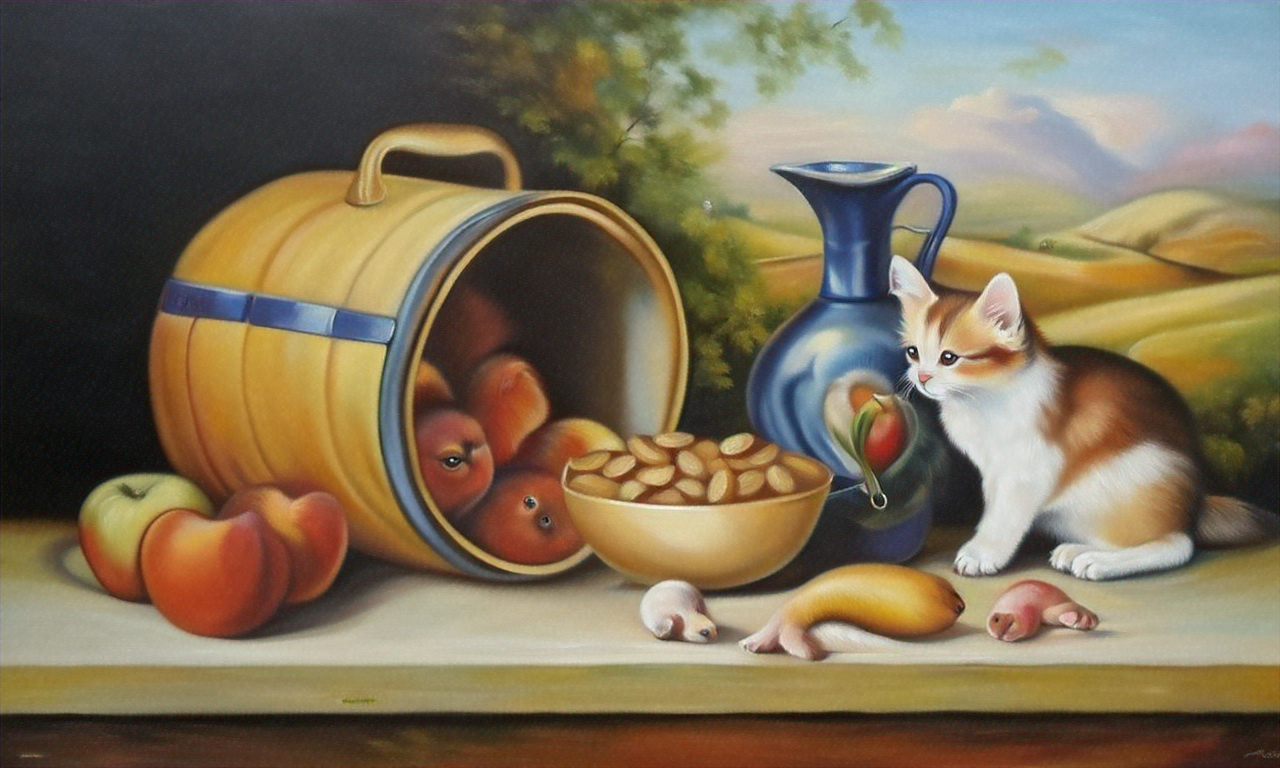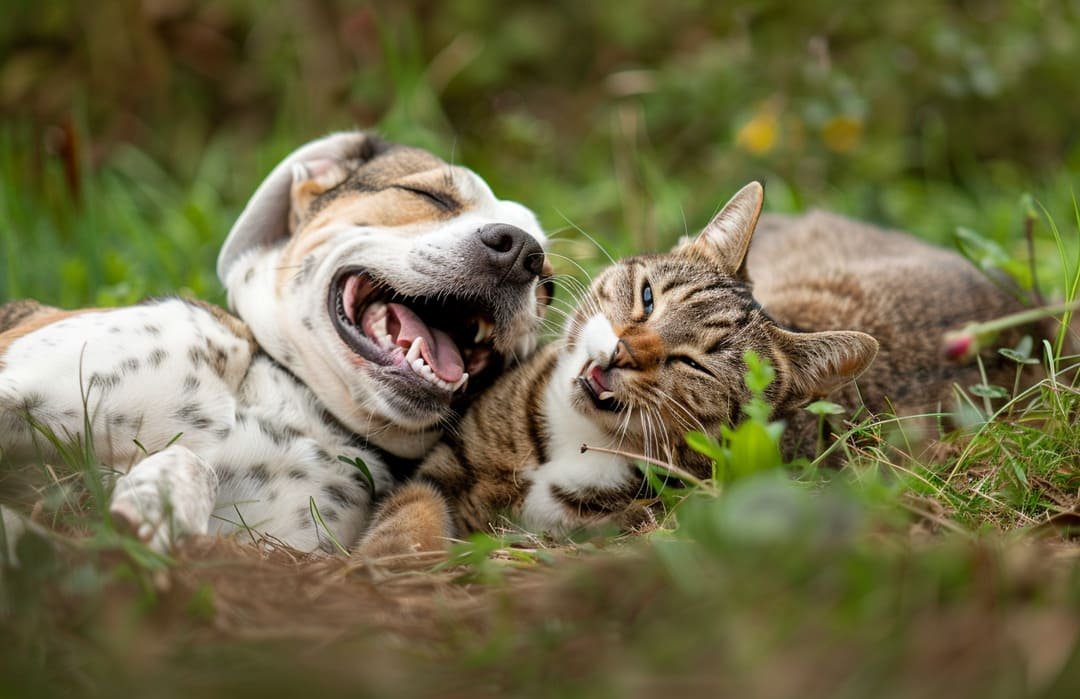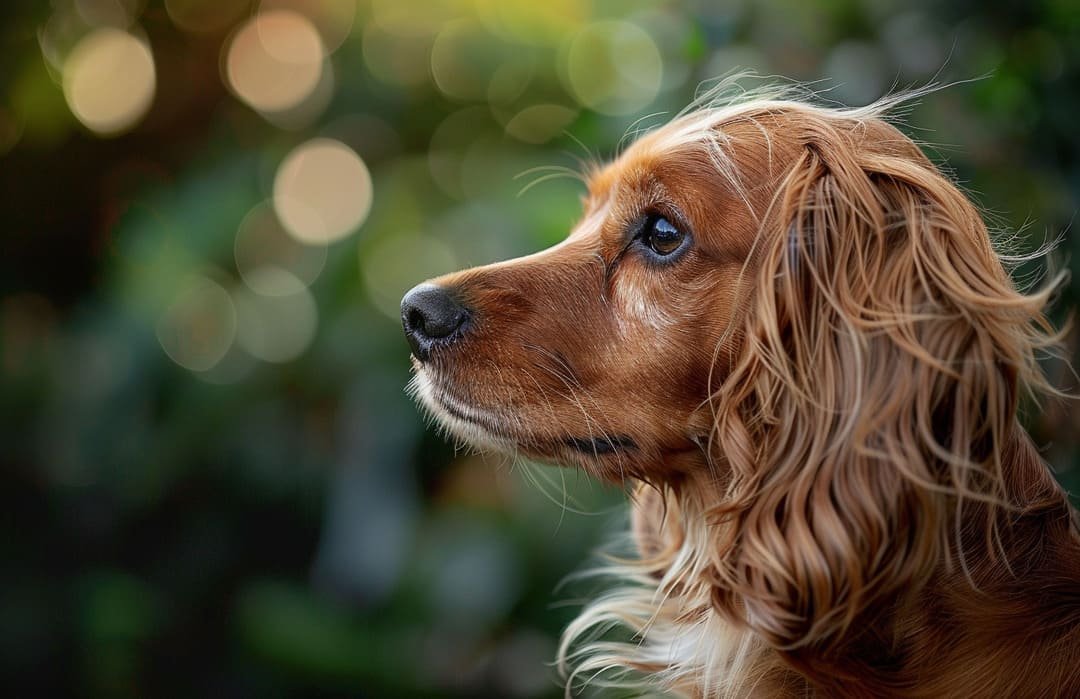Cat owners may be surprised to discover that their feline companions have a penchant for unusual culinary choices, such as eating dog food. This behavior can raise concerns not only about their diet but also about potential behavioral issues. Understanding why a cat eats dog food and the behavioral implications behind it is crucial for ensuring the well-being and happiness of our beloved pets. Let's delve into the fascinating world of cat nutrition and behavioral issues associated with this uncommon habit.
Understanding Cat Behavior and Dietary Needs
Natural Diet Preferences of Cats
Cats are obligate carnivores, meaning they require a diet primarily made up of meat. Their dietary needs include high levels of protein and certain essential nutrients that are not present in typical dog food. When cats consume dog food, they may not be getting the necessary nutrients to support their overall health and wellbeing.
Impact of Improper Diet on Cats' Health and Behavior
The consumption of dog food by cats can lead to various health issues, including digestive problems, nutrient deficiencies, and weight management issues. Behavioral problems such as aggression, lethargy, and changes in litter box habits can also arise from an inappropriate diet. It is essential to understand the negative implications of feeding cats dog food to prevent these issues.
Behavioral Issues from Eating Dog Food
Differences in Nutritional Needs Between Cats and Dogs
Cats have specific dietary requirements that differ significantly from dogs. For instance, cats need higher levels of protein, taurine, and certain vitamins that are not found in dog food. Feeding cats dog food can result in imbalances that impact their health and behavior over time.
Potential Health Problems for Cats Consuming Dog Food
When cats consistently eat dog food, they may experience nutritional deficiencies that can lead to serious health complications such as heart disease, urinary tract issues, and skin conditions. Monitoring your cat's diet and ensuring they are not consuming dog food is crucial for their overall well-being.
Signs Your Cat is Eating Dog Food
Changes in Behavior or Appetite
If your cat is consuming dog food, you may notice behavioral changes such as increased aggression, decreased energy levels, or a lack of interest in their regular meals. Sudden changes in appetite or food preferences can also indicate that your cat is eating food that is not suitable for them.
Physical Symptoms to Look Out For
Keep an eye out for physical signs that may indicate your cat is eating dog food, such as vomiting, diarrhea, dull coat, or weight loss. These symptoms can signal that your cat is not receiving the proper nutrients from their diet and may be in need of a dietary adjustment.
Remember, it is essential to address any behavioral or health concerns promptly to ensure your cat's well-being. If you suspect that your cat is experiencing issues related to eating dog food, consult with your veterinarian for guidance on a suitable diet plan.
Learn more about cat nutrition from a reputable source like Royal Canin.
Addressing the Issue: Cat-Friendly Feeding Solutions
Importance of Feeding Cats a Balanced Diet
Providing your cat with a balanced and species-appropriate diet is crucial for their overall health and behavior. Cats require specific nutrients, such as taurine, arachidonic acid, and vitamin A, that are not present in dog food. Ensuring that your cat's diet meets their nutritional needs can prevent behavioral issues and promote their well-being.
Tips for Preventing Cats from Accessing Dog Food
-
Keep dog food in a separate location that is inaccessible to cats.
-
Supervise feeding times to ensure that cats are not sneaking dog food.
-
Use feeding puzzles or interactive feeders to engage cats during meal times and prevent them from seeking out other food sources.
-
Consult with a veterinarian to explore alternative feeding options if you have multiple pets with different dietary requirements.
By implementing these strategies, you can create a cat-friendly feeding environment that supports your cat's unique dietary needs and helps prevent them from consuming dog food.
Consultation with a Veterinarian
Seeking Professional Advice for Behavioral Concerns
If you notice persistent behavioral issues in your cat related to eating dog food, it is essential to seek guidance from a qualified veterinarian. A veterinarian can provide insights into your cat's specific dietary requirements and recommend appropriate solutions to address behavioral issues stemming from improper nutrition.
Recommended Steps for Transitioning Cats to Proper Diet
Your veterinarian can offer guidance on gradually transitioning your cat to a suitable diet that meets their nutritional needs. They may recommend specialized cat food formulas or dietary supplements to address any deficiencies caused by consuming dog food. Consulting with a veterinarian is key to ensuring your cat's long-term health and behavior stability.
For more information on cat nutrition and feeding solutions, you can refer to resources from reputable pet food companies like Hill's Pet Nutrition or Purina.
Note: It's important to consult with a veterinarian for personalized advice on your cat's diet and behavior.
Conclusion
Understanding the Impact of Cat Eating Dog Food on Behavioral Issues
In conclusion, the behavior problems that may arise when a cat eats dog food are a result of nutritional imbalances and deficiencies. Cats have unique dietary requirements that differ from dogs, and consuming dog food can lead to health issues and changes in behavior. By recognizing the signs early and taking proactive steps, cat owners can help prevent these behavioral issues and ensure their feline companions receive the appropriate nutrition for their well-being.
Promoting a Healthy Feeding Environment for Cats
Creating a cat-friendly feeding environment involves providing a balanced diet tailored to a cat's nutritional needs and preventing access to inappropriate foods like dog food. By following vet-recommended feeding practices and monitoring your cat's behavior closely, you can support their health and prevent potential behavioral issues associated with dietary inadequacies.
Seeking Professional Guidance for Long-Term Solutions
For cat owners facing persistent behavioral issues linked to their cat eating dog food, consulting with a veterinarian is crucial. Veterinarians can offer personalized advice, recommend dietary adjustments, and suggest alternative feeding solutions to address any underlying health concerns or behavioral changes in cats. Prioritizing your cat's nutritional requirements and seeking professional support can contribute to their overall well-being and behavioral stability.
Remember, understanding your cat's dietary needs and addressing any behavioral issues promptly are key factors in maintaining a happy and healthy feline companion.
For further information on pet nutrition and behavioral solutions, consider exploring resources from reputable pet care brands like Iams.
Note: Behavioral issues in cats should always be approached with care and consideration for the individual needs of each cat.
Tips for Preventing Behavioral Issues
Providing Appropriate Environmental Enrichment
Creating a stimulating environment for your cat can help prevent behavioral issues related to stress or boredom, which may lead them to seek out alternative food sources like dog food. Introducing toys, scratching posts, and climbing structures can keep your cat mentally and physically engaged.
Establishing Consistent Feeding Routine
Maintaining a consistent feeding schedule can help regulate your cat's appetite and reduce the likelihood of them turning to dog food out of hunger or anxiety. By feeding your cat at the same times each day, you establish a routine that promotes stability and prevents behavioral disruptions.
Monitoring Your Cat's Behavior and Dietary Habits
Being observant of your cat's behavior and dietary habits allows you to detect any changes early on. Keep an eye out for signs that your cat may be accessing dog food, such as food disappearing quickly from the bowl or unusual behavior around the feeding area.
Consulting with a Professional Behaviorist
If your cat continues to exhibit behavioral issues despite preventive measures, seeking the expertise of a professional animal behaviorist can provide valuable insights and tailored solutions. A behaviorist can assess your cat's specific needs and recommend behavior modification techniques to address underlying issues effectively.
Implementing these tips and strategies can help minimize the risk of your cat developing behavioral issues associated with eating dog food, ensuring a harmonious living environment for you and your feline companion.
For additional guidance on cat behavior and enrichment, refer to expert resources like those provided by the American Society for the Prevention of Cruelty to Animals (ASPCA).
Note: Understanding your cat's behavior and providing appropriate enrichment are essential aspects of responsible pet ownership.
Importance of Cat-Friendly Solutions
Optimal Nutrition for Cats
Ensuring that your cat receives the right balance of nutrients is essential for their overall health and behavior. Cats have specific dietary requirements that must be met to prevent behavioral issues linked to nutritional deficiencies. Providing a diet tailored to a cat's needs can promote proper growth, energy levels, and mental well-being.
Creating a Cat-Safe Eating Area
Designating a secure feeding space for your cat can help prevent access to dog food and other unsuitable food sources. Choose a location that is inaccessible to dogs and away from areas where other pets may eat. This setup promotes a stress-free feeding environment for your cat and reduces the likelihood of behavior problems arising from food competition.
Utilizing Food Dispensing Toys
Food puzzles and interactive feeders can engage your cat during meal times and encourage mental stimulation. These toys not only provide physical exercise but also prevent boredom-related behaviors that may lead cats to seek out alternative foods like dog food. Incorporating food-dispensing toys into your cat's routine can promote healthy feeding habits and alleviate behavioral issues.
Regular Veterinary Check-Ups
Scheduling routine veterinary appointments allows you to monitor your cat's health and address any underlying issues that could contribute to behavioral changes. Veterinarians can offer guidance on nutrition, behavior modification, and overall wellness, helping you support your cat's behavioral health and prevent the consumption of dog food.
By implementing cat-friendly solutions and prioritizing your cat's nutritional needs and well-being, you can create a positive environment that fosters good behavior and a strong bond between you and your feline companion.
For comprehensive information on feline nutrition and behavioral management, consider exploring resources from reputable pet care companies like Mars Petcare.
Note: Cat-friendly solutions play a vital role in maintaining a harmonious relationship with your beloved cat.
Why do some cats eat dog food?
Some cats may be attracted to the smell or taste of dog food, leading them to consume it even though it does not meet their specific nutritional requirements. Cats have unique dietary needs that differ from dogs, and consuming dog food can result in health issues and behavioral changes.
Is it harmful for cats to eat dog food occasionally?
While an occasional small amount of dog food may not immediately harm a cat, regular consumption can lead to nutrient imbalances and deficiencies. Cats require specific nutrients, such as taurine and arachidonic acid, that are not adequately provided by dog food. Consistent ingestion of dog food can impact a cat's health over time.
How can I prevent my cat from eating dog food?
To prevent cats from consuming dog food, ensure that dog food is kept in a separate area that is inaccessible to cats. Supervise feeding times to prevent cats from sneaking dog food. Additionally, provide cats with a balanced and nutritionally complete diet to deter them from seeking out alternative food sources.
What are the signs that my cat is eating dog food?
Signs that your cat may be eating dog food include changes in behavior such as increased aggression or lethargy, differences in appetite, and physical symptoms like digestive issues or weight loss. Monitoring your cat's behavior and diet can help you identify any potential issues related to their food preferences.
Should I consult a veterinarian if my cat eats dog food?
If your cat has consumed dog food and you notice any behavioral changes or health issues, it is advisable to consult with a veterinarian. A veterinarian can assess your cat's condition, provide tailored dietary advice, and address any concerns regarding your cat's behavior and well-being.


